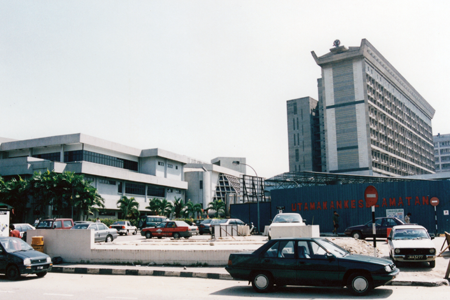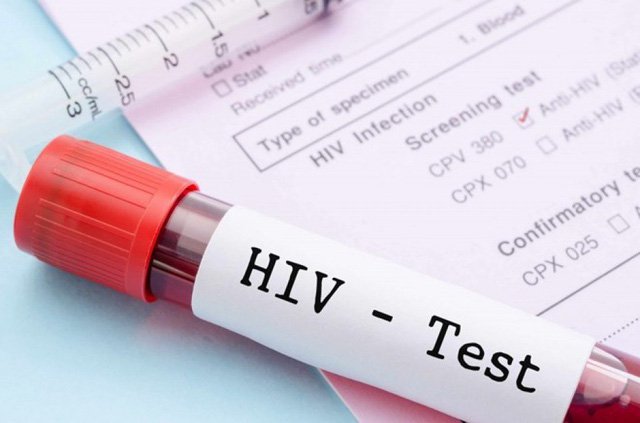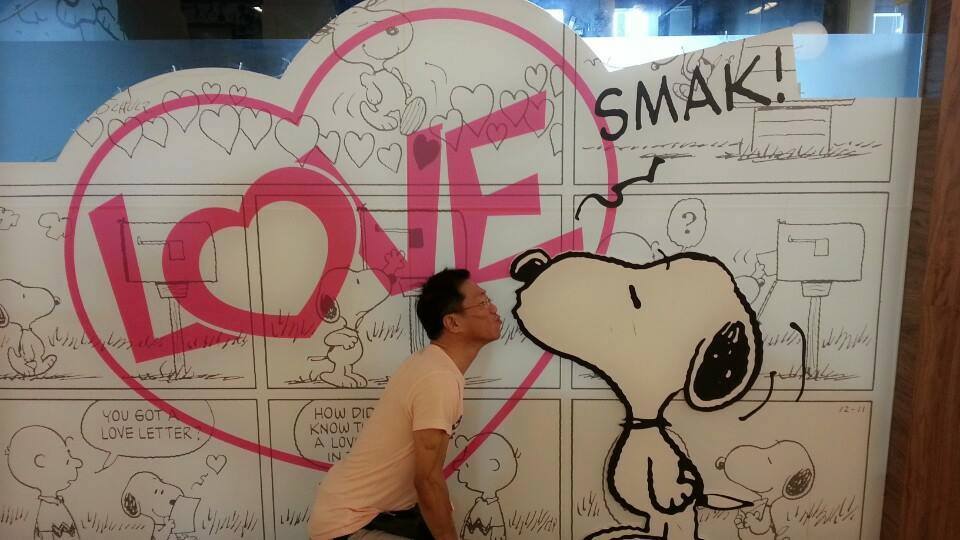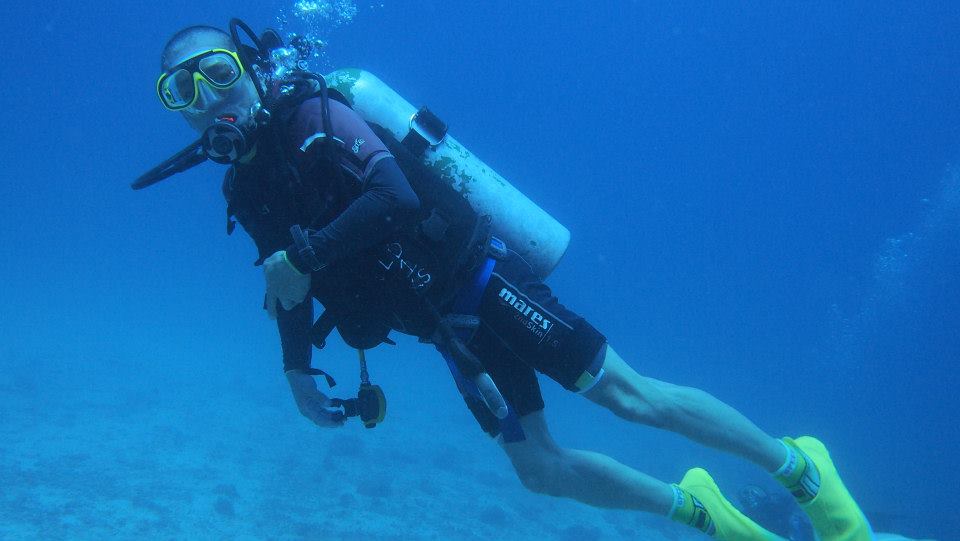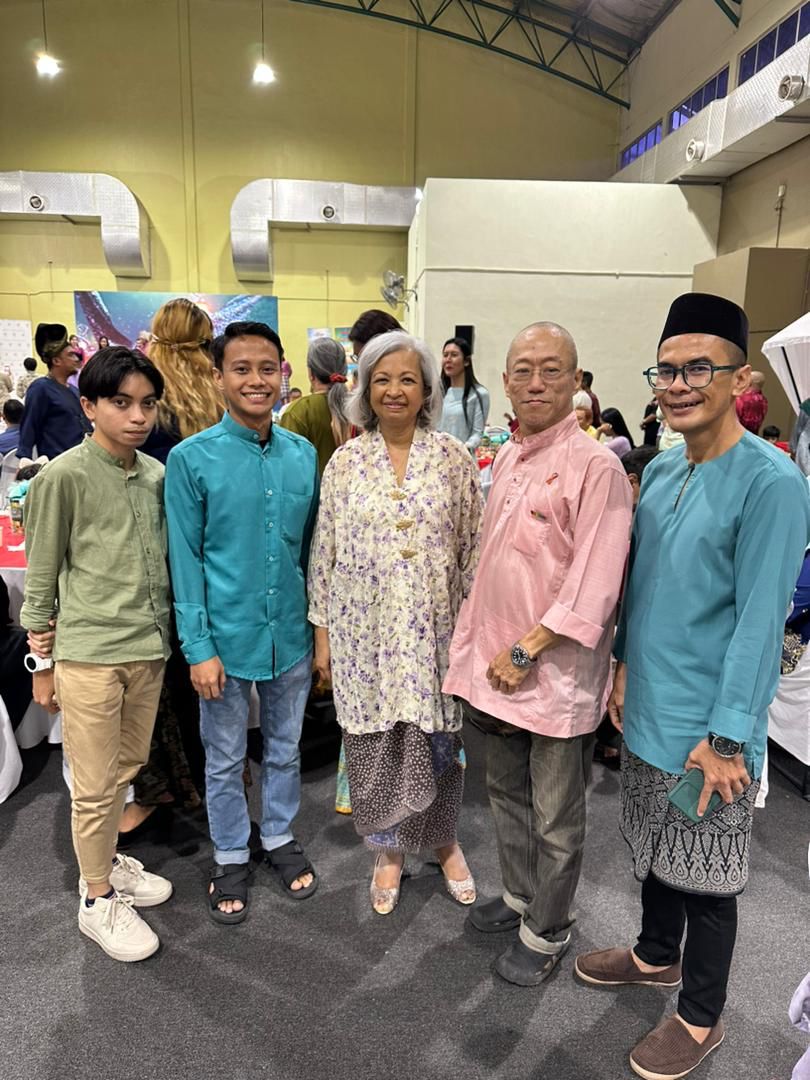 Lifestyle
Lifestyle"I Prepared Myself To Die That Year" — 64-Year-Old M'sian Reflects On His HIV Journey
Andrew was diagnosed with HIV in 1994, exactly 30 years ago.
In 1994, exactly 30 years ago, Kuala Lumpur-born Andrew Tan felt as though he had been handed a death sentence when he tested positive for the human immunodeficiency virus (HIV)
Andrew, who was 34 years old at the time, visited a hospital in Kuala Lumpur, thinking he was seeking treatment for a simple viral infection.
"All I knew was that I was very sick. There were symptoms like fever, night sweats, and weight loss," he shared in a recent interview with SAYS, noting that he only went to the hospital because his mother insisted.
As medical technology was not as advanced back then, it took doctors a long time to diagnose Andrew with HIV
"Finally, the doctor said, 'Andrew, your results came back positive. You are HIV positive. And we're going to discharge you now," Andrew shared, adding that it was as if the doctor was saying there was nothing else he could do for Andrew.
Recalling the time spent at the hospital awaiting his results, Andrew said that he still vividly remembers the moment.
"I took what the doctor said as the truth, and I prepared myself to die that year," Andrew recounted.
Lost, confused, and frustrated, Andrew suffered alone while preparing his will to distribute his property. He intended to keep his family from learning about his condition, but a medical officer from the health department ended up revealing it to them.
According to Andrew, the officer's duty was to safeguard and ensure that individuals with notifiable diseases, such as HIV, measles, chlamydia, malaria, rubella, and more, followed up on their necessary medical care.
"He called my house and asked for me. My mum, being protective and suspicious, told him that I was a tenant who was renting a room at her place. He instantly told her to kick me out of the house, saying, 'This person has AIDS.' That's how my mum found out," he said, adding that the medical officer was also ill-educated for categorising HIV and AIDS as the same thing.
Andrew's mum broke down in tears, fearing that her son was going to die that year. Within a day, everyone in the family learned about his condition.
In the 1990s, there was a lack of information and awareness about HIV, not just in Malaysia, but globally as well. The viral infection was heavily misunderstood and stigmatised, often resulting in HIV patients losing their families and homes.
Thankfully, Andrew found understanding and support from everyone in his family.
"I consider myself very lucky. My mother wanted to cook a lot of food for me. She was worried that if I had not stuffed myself with food, I was going to die and become a hungry ghost," Andrew said with a laugh.
Meanwhile, Andrew's brother offered as much support as possible, emphasising that he was more than willing to help pay Andrew's medical bills.
However, due to his limited knowledge about HIV, Andrew feared that he could transmit the virus to his family through touch or shared food. So, he avoided them as much as he could.
"I would purposely go back home very late, and use my own utensils to not put them at risk of contracting the disease," he shared.
Andrew was overwhelmed with frustration at the time, and constantly blamed himself for making a mistake that changed his life.
"People assume that you get HIV because you're a bad person. Strangely enough, I don't consider myself a bad person. I do not rob; I do not steal. The only mistake I made was trusting the wrong person. I thought this person liked me enough and would protect me for life. But I didn't blame this person — I was blaming myself.
"Because of that one mistake, my life was forever changed. Something I thought was beautiful and emotional turned out to be the worst decision I ever made," he said.
In 1995, Andrew became very ill and finally confided in a friend, who then referred him to a treatment centre at Universiti Malaya Medical Centre (UMMC)
"There was an HIV clinic known as the infectious diseases clinic. All of the doctors were still learning and researching the disease, but they prescribed me a medicine called zidovudine, which I had to take twice a day," said Andrew.
Zidovudine (monotherapy) was the first antiretroviral medication (ART) used to prevent and treat HIV and AIDS. Despite its effectiveness, prolonged use of zidovudine can lead to anaemia.
Due to Andrew's underlying blood condition called thalassemia, which results in the body not producing enough haemoglobin, he quickly began experiencing side effects.
"We couldn't do anything and the doctors were trying to sort it out with different and new medicine. At one point, I was paying as much as RM2,000 a month for medicine and taking 20 pills a day. Receiving treatment back then was very different and tough," Andrew shared.
It took Andrew five years for his viral load to become Undetectable = Untransmittable (U=U). This status means that an HIV-positive individual will no longer transmit the virus because it has been successfully suppressed through medication.
Five years for HIV to become undetectable is extremely long.
According to HIV.gov, the average time period for a viral load to become undetectable is usually about one to six months, provided that the patient receives treatment early and takes their medicine as prescribed.
If Andrew had received his treatment much earlier, his body's immune system would not have been as weakened.
When asked whether he has faced any discrimination from the public, Andrew immediately said he hasn't
However, he recalled an incident when a receptionist at a dental clinic refused to allow him to receive treatment after learning about his health status.
While the situation today has greatly improved, he shared that many people he knows have faced discrimination far worse than him.
This year, Andrew will turn 64 in May and will be celebrating the 30th anniversary of receiving his HIV diagnosis
Besides scuba diving, the 64-year-old spends much of his time volunteering at the Kuala Lumpur AIDS Support Services Society (KLASS), a non-profit organisation founded in 2001 by medical professionals, volunteers, and affected communities to provide help and treatment literacy to HIV and AIDS patients.
Andrew stumbled upon KLASS a year after its charter, and discovered that his life's calling is to provide counselling and assistance to affected patients. He currently serves as the president of KLASS, as well as an executive committee member at the Malaysian AIDS Council.
"If it wasn't for KLASS, I wouldn't be here speaking to you today. I wouldn't have the courage to share my story or provide help to others.
"I told the doctors and nurses in the hospital that they can contact me for help if they come across an HIV or AIDS patient who has a hard time coming to terms with their condition and would like to speak to someone about it.
"I would usually draw from my experience, but most importantly, let them know that it is going to be alright and that I am a living example of it. I also want to empower other community members with the correct information," he said.
Image via Andrew Tan (Facebook)
Andrew hasn't made plans for his 30th anniversary yet and is open to suggestions. He also jokingly added that sponsorships are more than welcome.
"During my 20th anniversary of dealing with HIV, I became introspective about my life. I was so busy helping and focusing on other people. I realised that I should also take care of myself. And that's when I pursued scuba diving. I went for lessons and became a certified scuba diver."
Image via Andrew Tan (Provided to SAYS)
Andrew (second from right) with Malaysian AIDS Foundation patron Datin Paduka Marina Mahathir (centre).
Image via Andrew Tan (Provided to SAYS)
He shared that KLASS offers many more services, including community-based testing, primary care, consultation for mental health and nutritional disorders, as well as awareness and informative talks planned with local and international NGOs.
Today, Andrew is the only remaining counsellor in KLASS who was diagnosed with HIV between the '80s and '90s.
"I wondered why I am the only counsellor who has survived. I take it to mean that it's God's way of telling me that my work here is not done yet. I need to encourage people to get tested and treated, as well as take their medications as prescribed so their viral load becomes undetectable," he shared.
You can learn more about KLASS here.

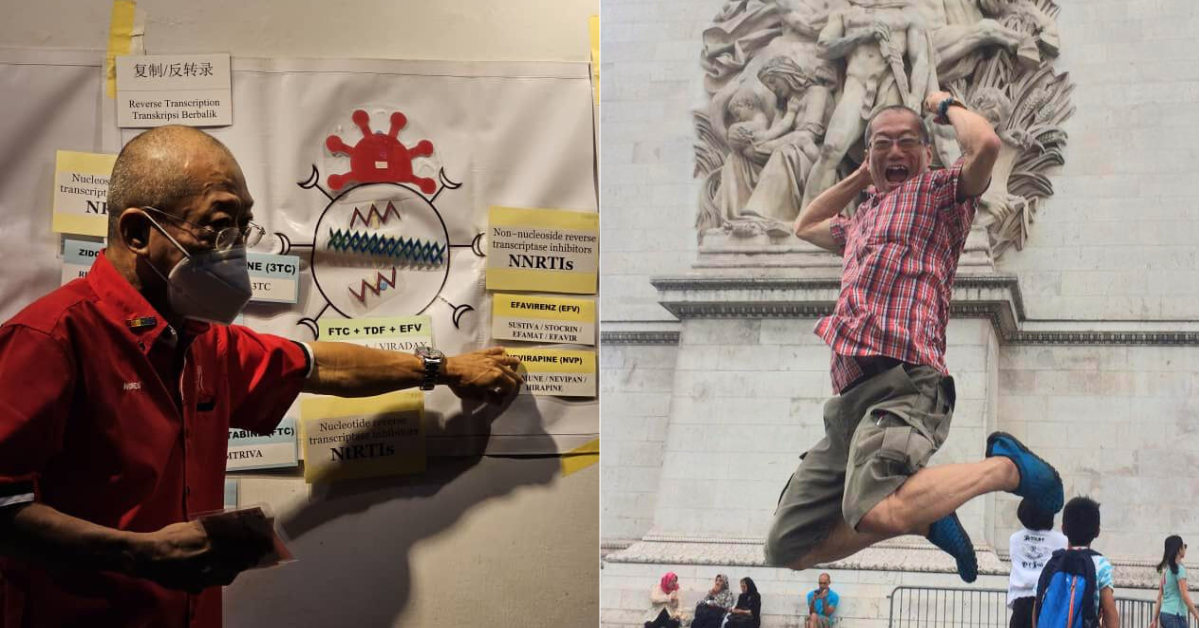 Cover image via
Cover image via 


